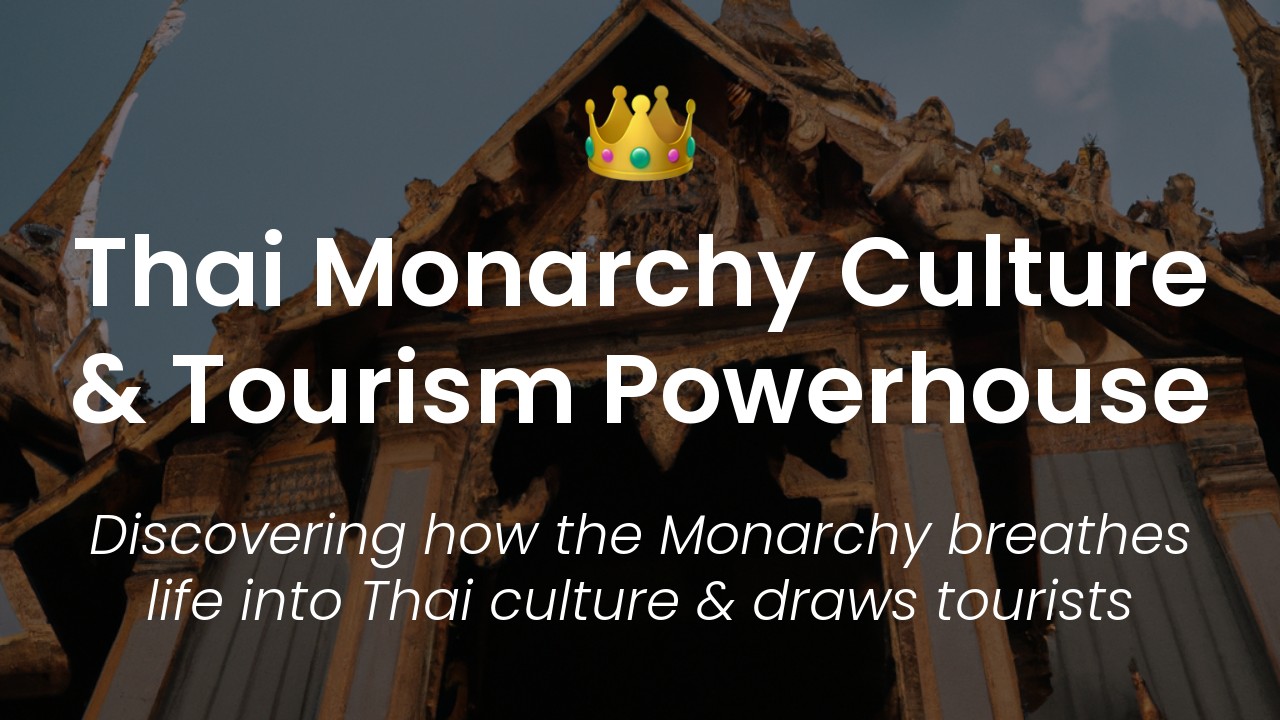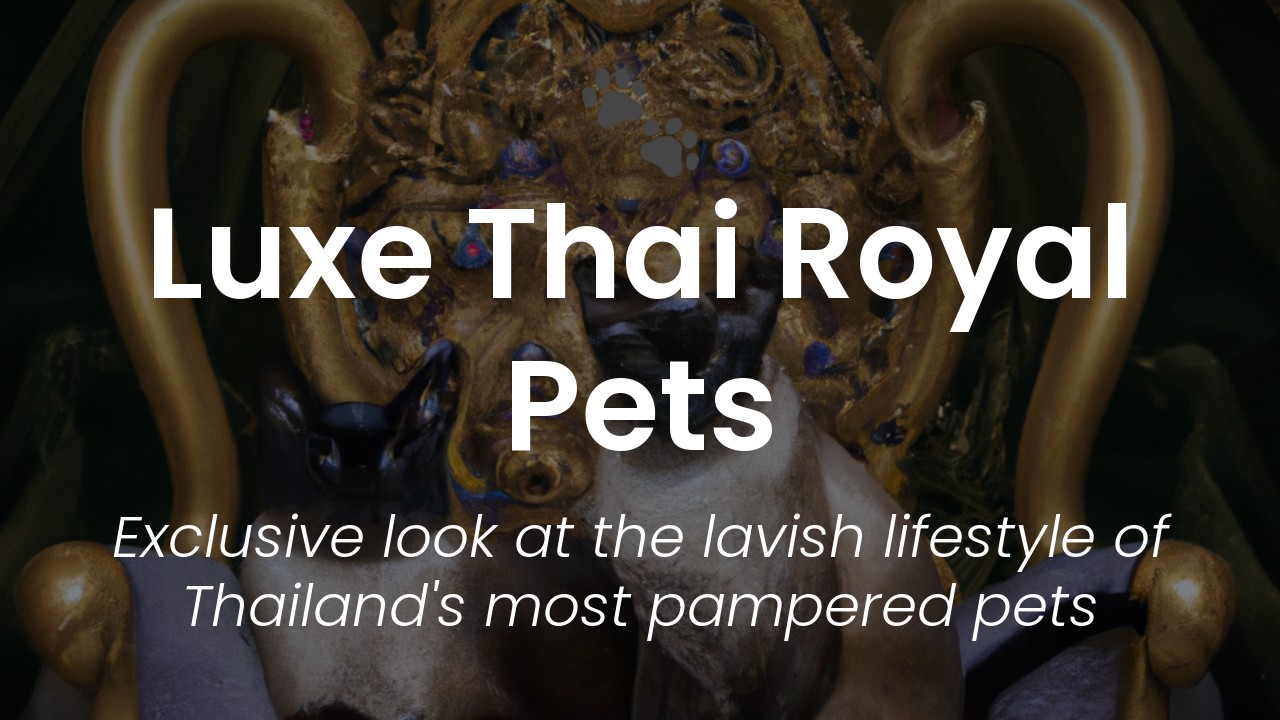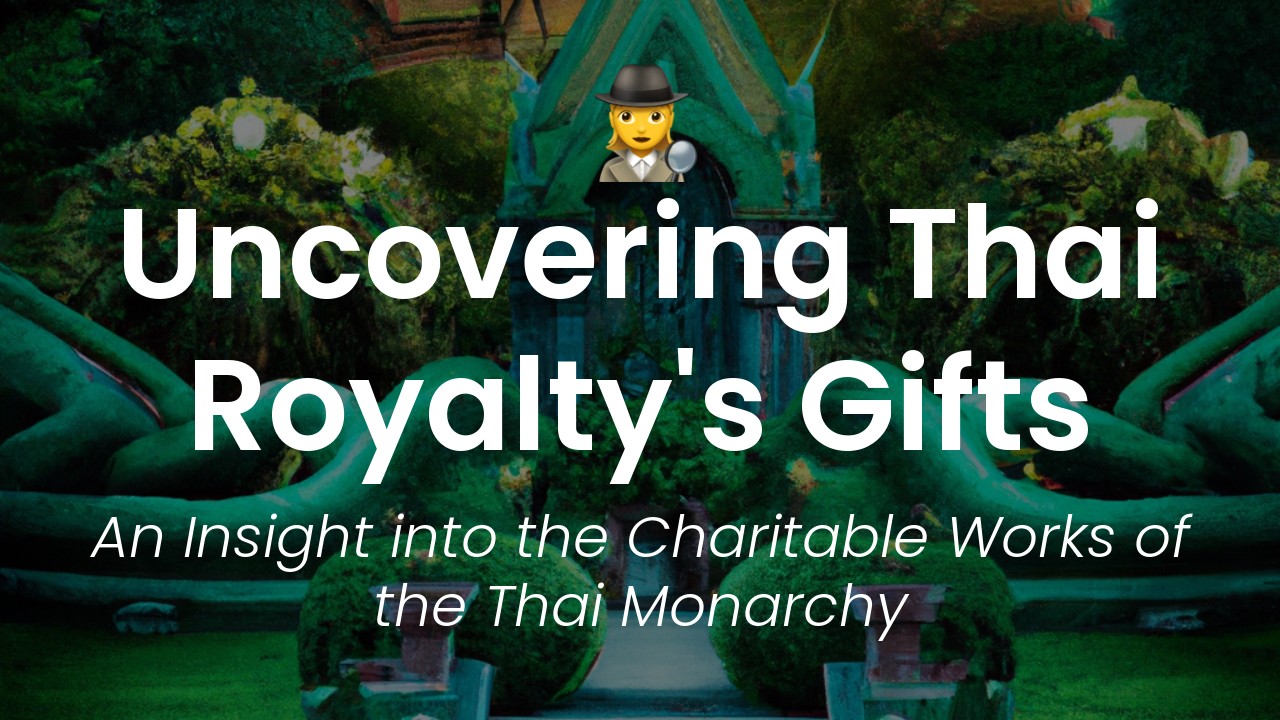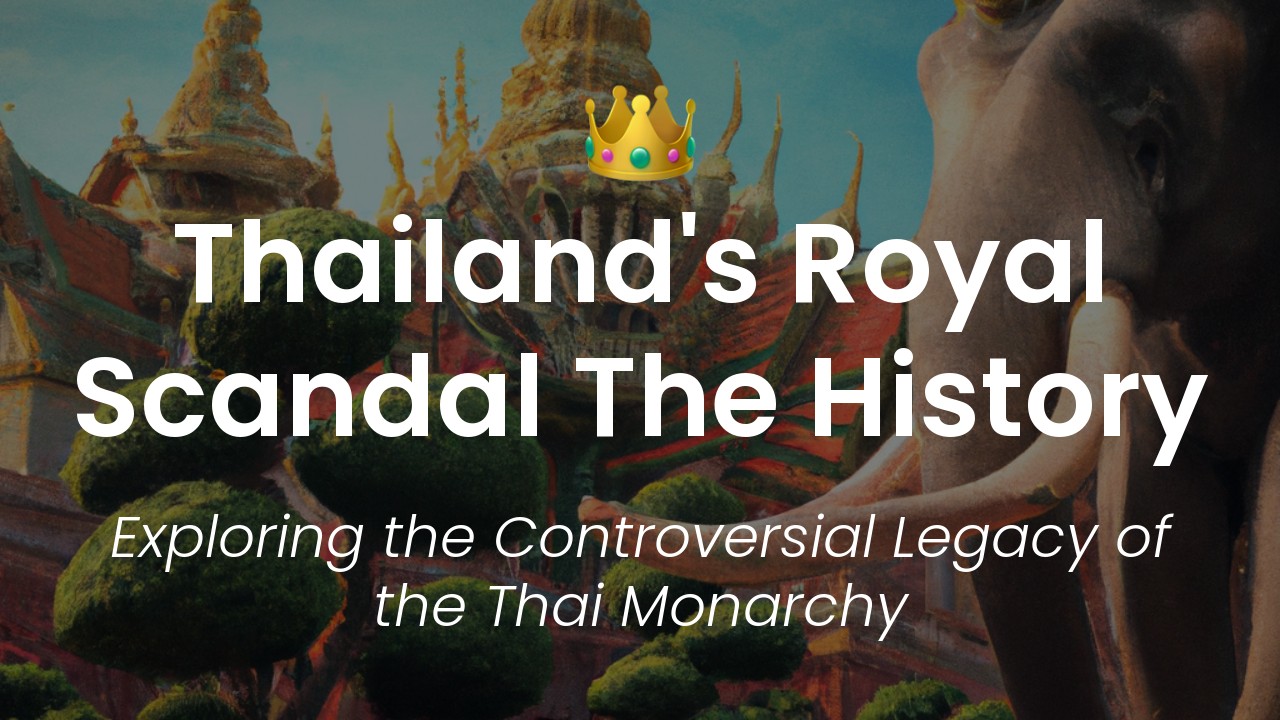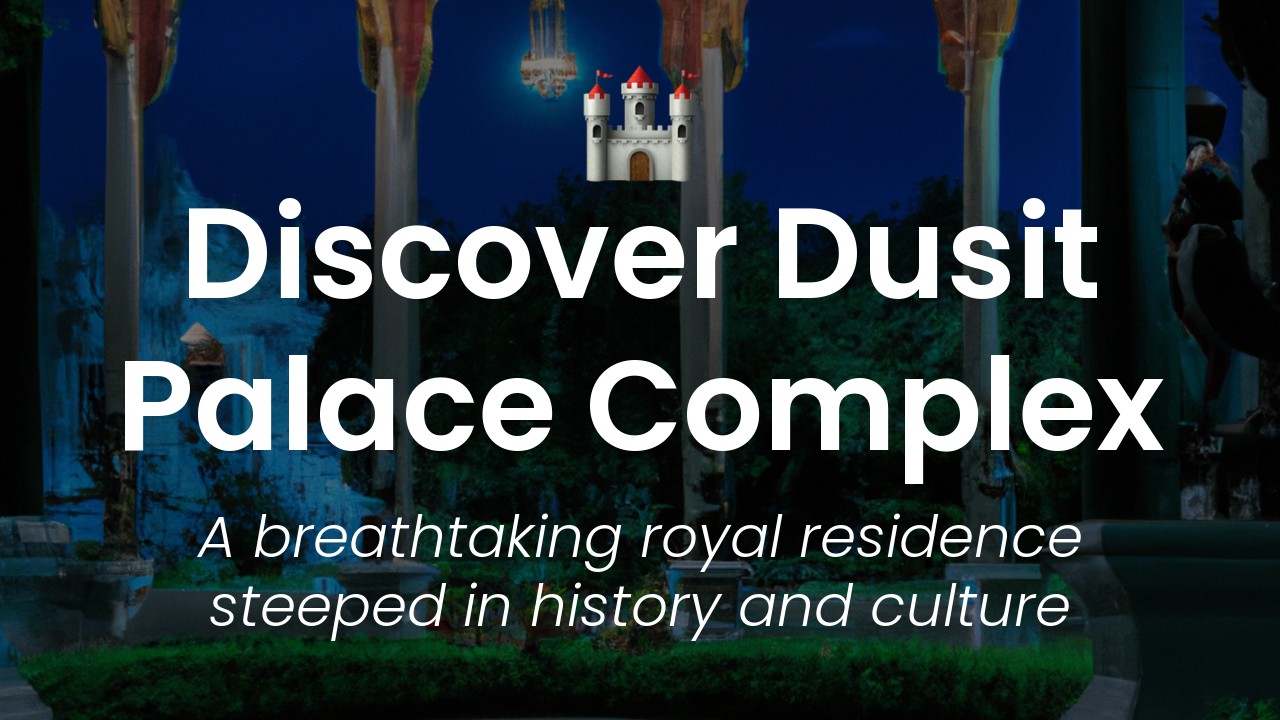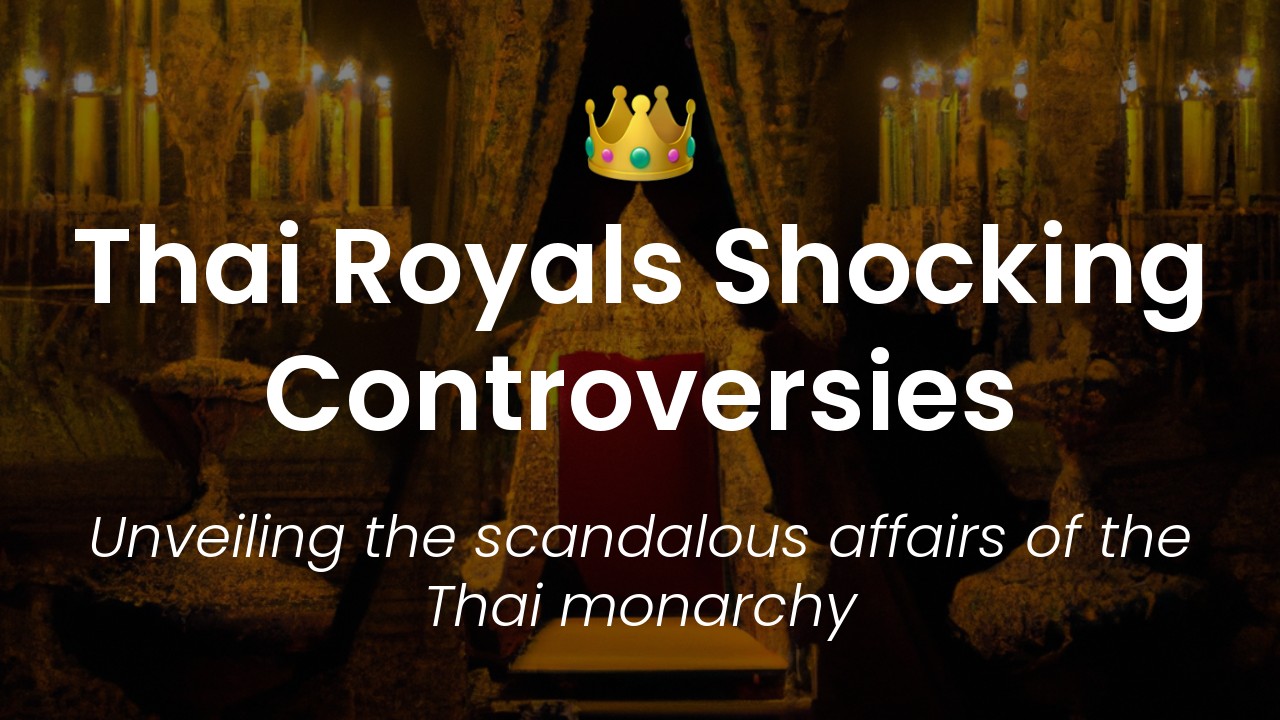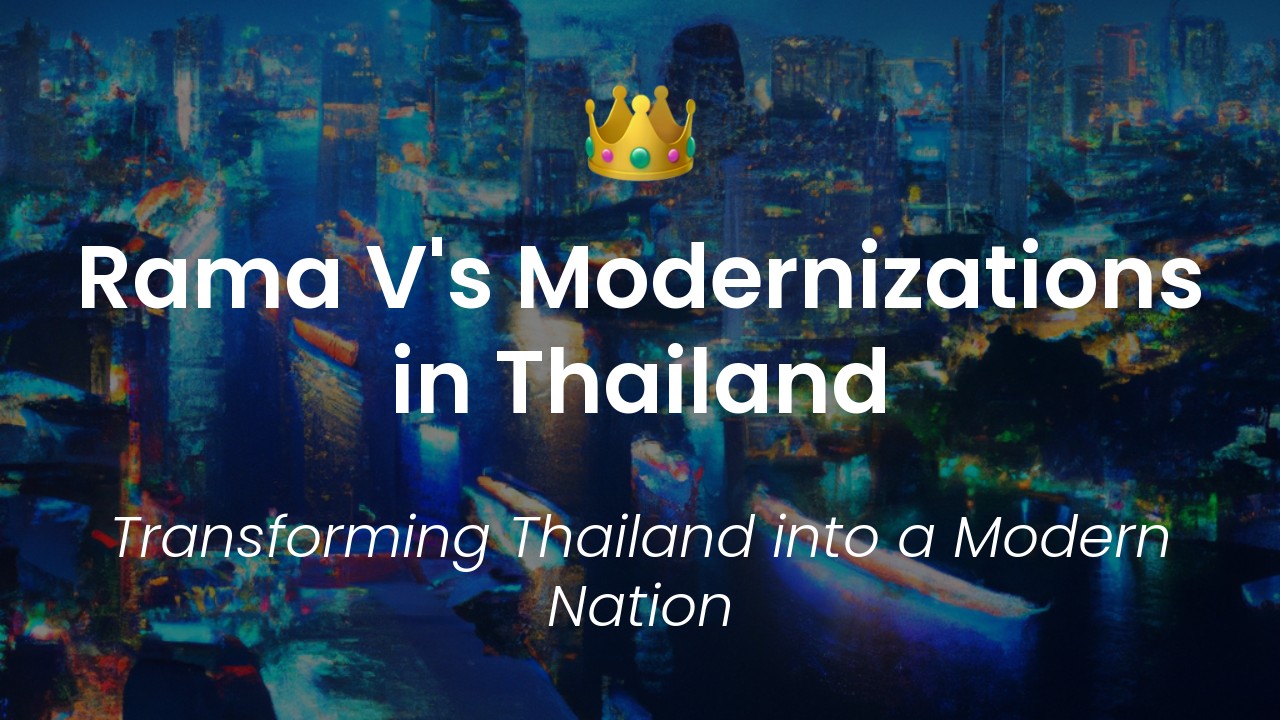As a proud Thai national, I cannot express enough the great admiration and respect we collectively have towards our beloved monarch. It's no secret that the Thai Monarchy has always been a vital part of our national identity and cultural heritage for centuries.
Besides its historical significance, the Monarchical Institution holds significant influence today, particularly in the tourism industry. Thailand's tourism industry is one of the strongest in the world, and the Monarchy plays a massive role in its success.
Hence, in this article, I would like to delve deeper into how the Thai Monarchy influences tourism and culture. To help you understand better, I will share various stories and examples from my own experiences. From the grandeur of the old royal palaces to the humble lifestyle of the present King, I aim to unravel the exciting dynamics of the Monarchy and its influence on tourism and culture.
Join me on this insightful journey as we uncover the powerful role of the Thai Monarchy in culture and tourism.
The Historical Significance of Thai Monarchy
The monarchy has played a vital role in Thai society since ancient times. Thailand's monarchy is one of the oldest and most revered in the world. It has evolved over the years, but its importance in shaping Thai culture and tourism remains steadfast.
The monarchy has always been a unifying force in Thai society. The King has acted as a spiritual leader, a role model, and a protector of the Thai people. In the past, the King was also responsible for ensuring the well-being of the kingdom's citizens, including the provision of food, water, and shelter.
Today, the role of the monarchy has changed, but it still plays a significant role in Thai culture and tourism. The monarch is a symbol of national unity, and the Thai people look up to their King as a source of inspiration.
Thailand's Royal Projects for the Community
The Thai monarchy is actively involved in the development of the country, particularly in rural areas. The royal projects initiated by the monarchy are aimed at improving the living standards of the people living in these areas.
One of the most well-known royal projects is the Doi Tung Development Project, initiated by the late Princess Mother. The project focuses on improving the lives of the rural hill tribe communities that live in the Doi Tung area.
Through the project, the hill tribes have been taught sustainable agriculture, including the cultivation of coffee and macadamia nuts. The project has also provided vocational training to the people, helping them develop new skills and become self-sufficient.
Preservation and Promotion of Thai Culture
The monarchy has also been instrumental in preserving and promoting Thai culture. The monarch has always been a patron of the arts and has supported various forms of traditional Thai art, including music, dance, and theater.
The Royal Ballet of Thailand is one of the most well-known institutions supported by the monarchy. It is a dance company that performs traditional Thai classical dance. The performances are a visual representation of Thai culture and are enjoyed by locals and visitors alike.
Additionally, the monarchy has also supported the preservation of Thai architecture. The Grand Palace in Bangkok is one of the most well-known and impressive examples of Thai architecture. Visitors to Thailand can tour the Palace to get a glimpse of Thai culture and history.
Royal Ceremonies and Festivals
Royal ceremonies and festivals are an integral part of Thai culture. These events are steeped in tradition and are attended by thousands of Thai people every year.
One of the most well-known ceremonies is the Coronation Day Ceremony, which is held to celebrate the King's accession to the throne. The ceremony is marked by a grand procession from the Grand Palace to the Temple of the Emerald Buddha.
Another important festival is the Songkran Festival. It is held in April every year and marks the Thai New Year. The festival is celebrated with water, and people across Thailand splash each other with water to signify the washing away of the old year and the beginning of a new one.
Thai Monarchy's Influence on Tourism
The Thai monarchy has played a significant role in making Thailand a popular tourist destination. The country's rich culture, history, and traditions have attracted millions of visitors from around the world.
The monarchy's support of tourism can be seen through the development of various attractions managed by the Royal Family. The attractions include the Bang Pa-In Palace, the Royal Barges Museum, and the Suan Pakkad Palace Museum.
Additionally, the monarchy has also supported the development of festivals and events that attract tourists, such as the Amazing Thailand Grand Sale, which offers discounts on a wide range of products and services.
The Grand Palace and Other Royal Landmarks
The Grand Palace is undoubtedly one of the most popular tourist attractions in Thailand. The Palace is located in the heart of Bangkok and is home to a number of important monuments and buildings.
The Grand Palace is home to the Temple of the Emerald Buddha, which is considered one of the most sacred sites in Thailand. Visitors are allowed to tour the Palace and see the many stunning works of art and historical artifacts that are on display.
Another important royal landmark is the Bang Pa-In Palace. The Palace is located near Ayutthaya and is a mixture of Thai, Chinese, and European architectural styles. The Palace is surrounded by beautiful gardens and has a tranquil atmosphere that attracts tourists seeking a break from the hustle and bustle of Bangkok.
Royal Patronage of the Arts and Crafts Industry
The Thai monarchy's patronage of the arts and crafts industry has led to the development of a thriving industry that employs thousands of people across Thailand.
Examples of crafts supported by the monarchy include traditional Thai silk weaving, jewelry making, and pottery. These crafts are sold in markets across Thailand and are popular with tourists looking for souvenirs to take home.
In conclusion, the Thai monarchy's role in shaping Thai culture and tourism cannot be overstated. The monarchy has been instrumental in supporting and preserving Thai culture, promoting tourism, and improving the lives of people living in rural areas. As such, the monarchy's importance to Thailand's past, present, and future is immeasurable.

